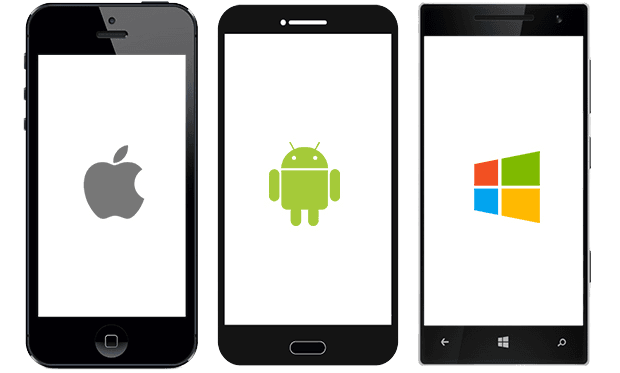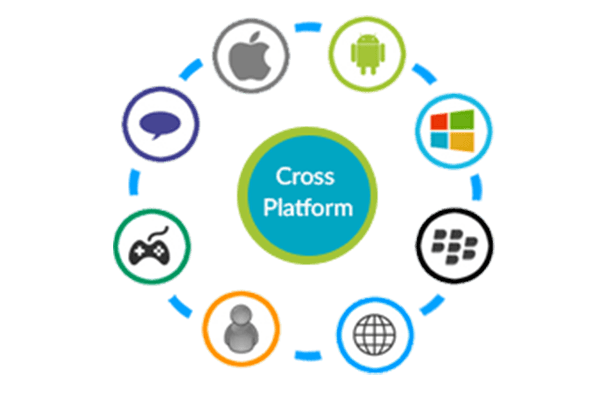When it comes to the term "app development", it can refer to native or cross platform mobile app development or it can also refer to web app development. This can sometimes be confusing.
We're here to help break it down and explain the difference between the different types of app, their associated pros and cons and offer some guidance on how to choose the best option for your business.
We get asked quite a lot what the best platform is for building on and the short answer is that it depends on what you’re trying to achieve. There are pros and cons to every type of app development so we’ll hit you with the good and the bad of each type.
What is a web app?
Simply put, a web app is an application that is accessed via a web browser over a network or the internet, stored on a remote server.
So, it’s basically a website then I hear you ask?
Not necessarily. This is a pretty subjective area but the way we see it that a website is defined by it’s content and is purely informational. A web application on the other hand is based on the interaction it has with its users (e.g. can I DO something on this website like buy something or send emails?). A web application is essentially a program that runs remotely and requires programatic user input and data processing. It needs an active internet connection for it to work across devices.
The vast majority of web apps are built in JavaScript, CSS and HTML5.
Benefits of web apps
A web app does not have to be downloaded via an app store and be installed on users devices for them to access it.
It’s accessible anywhere where there is an internet connection.
It’s easily customisable. The user interface (UI) is inherently easier to customise than desktop applications. This means it’s easier to customise the presentation of information to different user groups and can offer a better user experience through responsive design.
Has the ability to integrate client secure login.
Always up to date. Everyone will be accessing the same version of a web app via a URL so you can rest assured that your users will always be accessing the most up to date version of the app.
Web based applications also offer an extra layer of security by removing the need to a user to have access to the data back end servers.
Web apps can be more cost effective than building native apps due to the application needing to only be developed for a single operating system. There’s no need to test it on different devices and there will be less cost associated with maintenance and troubleshooting.
Downsides of web apps
It does require an internet connection to be accessed- this is not always available.
Unfortunately we don’t all use the same browsers, this means that you will have to ensure that your web app is supported on a number of different web browsers (eg Chrome, Safari, Firefox, IE10 etc).
As web apps are hosted on a remote server this can sometimes mean a slower experience for users.
What is a progressive web app?
Until recently, web apps lacked the functionality of native apps like the ability to send push notification and work offline but the recent explosion of progressive web apps are changing this. Progressive web apps use modern web technology to deliver app-like experiences and are often a great option for businesses who don’t have the budget to invest in a mobile app.

What are native apps?
Native apps are developed specifically for one mobile platform (for example Apple, Android and Windows) and can take full advantage of the all of the devices features.
The main appeal of native app development is that they really optimise the user experience. Development for specific platforms (iOS/ Android) often mean that the apps look and generally perform better.
Advantages of native apps
They perform and look better when built on a specific operating system by following specific UI standards.
Native apps have full support from the app stores (Apple app store and Google Play). This is a vital part of app discovery and driving users to download your app.
Native apps can take advantage of device features such as calendar, camera, microphone and GPS.
They don’t require an internet connection and can be accessed offline.
Downsides of native apps
They can only be developed for one device type (Apple/ Android).
Native projects are considerably more expensive for developers compared to cross platform and web apps.
The process of getting an app into the app store can be long and tedious sometimes. Any updates also have to be approved by the app stores.

What are cross platform apps?
What if you can have it all? We are seeing a move away from specific native app development. The promise of wider reach and audience is too alluring and cross-platform app development makes it easier for developers to deliver their apps to iOS, Android and other less well known platforms.
Cross platform apps are developed using a language that can be surrounded with native code and then deployed across all platforms. There are multiple technologies for developing cross platform apps, at xDesign we use Xamarin.
Advantages of cross platform apps
Reusable code means that developers don’t need to write unique code for every platform.
Cross platform app development is typically faster as only one codebase is being developed which means businesses can now get their apps on other platforms without investing in more development and testing.
A cross platform app means that by default you get a wider audience reach.
It’s ideal for many B2B and business process automation apps where speed of deployment and utilisation of resources is more important than the look and feel of the app.
Downsides of cross platform apps
Developing an app for multiple operating systems and screen layouts can be a bit challenging. The most successful apps are built with native iOS or Android to create higher engagement with users.
Each platform has a unique set of features and functionality to build an optimal user experience for the user.
There’s not always flawless integration into platforms and it it could potentially hamper the ability to use certain features on a device.
So...which one do I choose?
Hopefully this has given you a bit more clarity about the different types of app development. When it comes to choosing which one to pick, it will depend entirely on the app you want to build and the users you want to target.
Whilst native apps arguable offer a more superior user experience, cross platform apps are catching up and provide a greater audience reach.
Web apps and cross platform apps can also be optimal solutions for B2B and business process automation apps due to the ability to build and deploy quickly.
Are you interested in building an app? Whether you’re looking to build a web app, native app or cross platform app- we can help. Get in touch with us for a chat!

